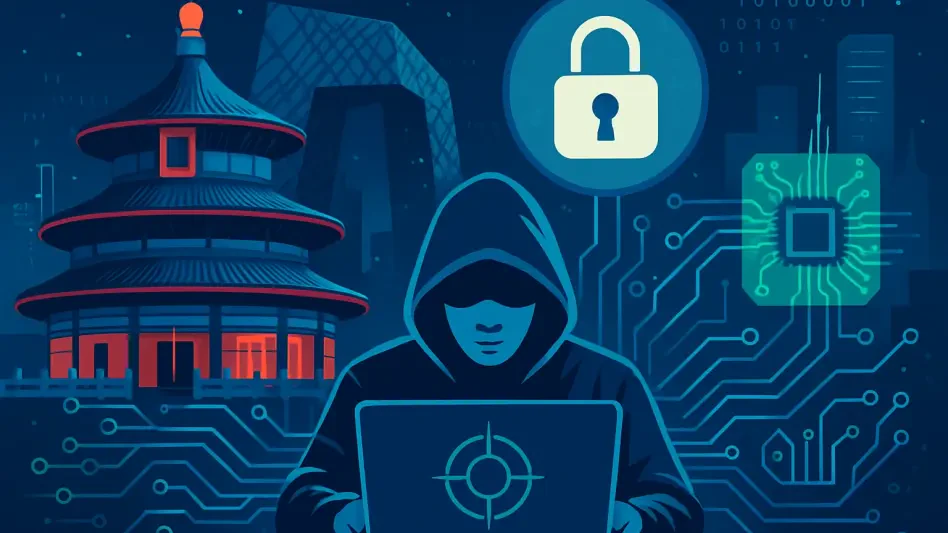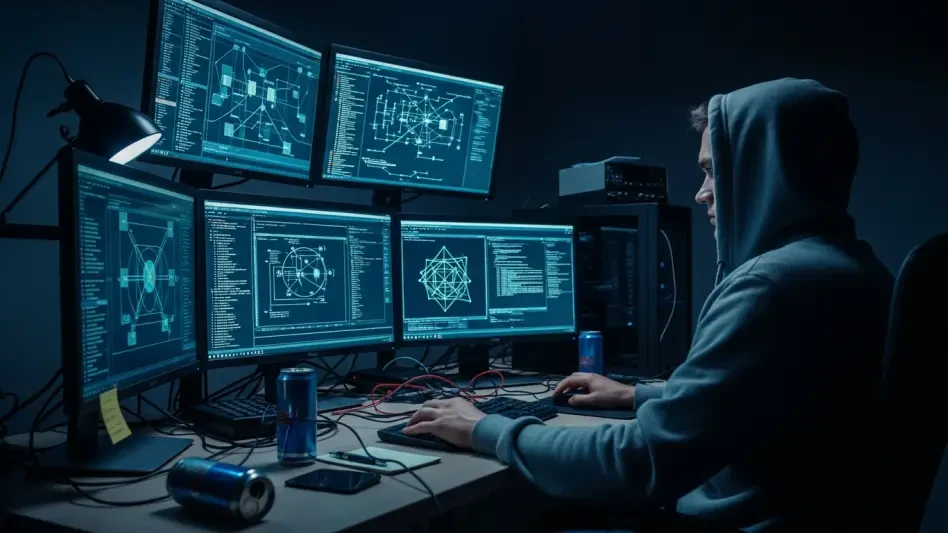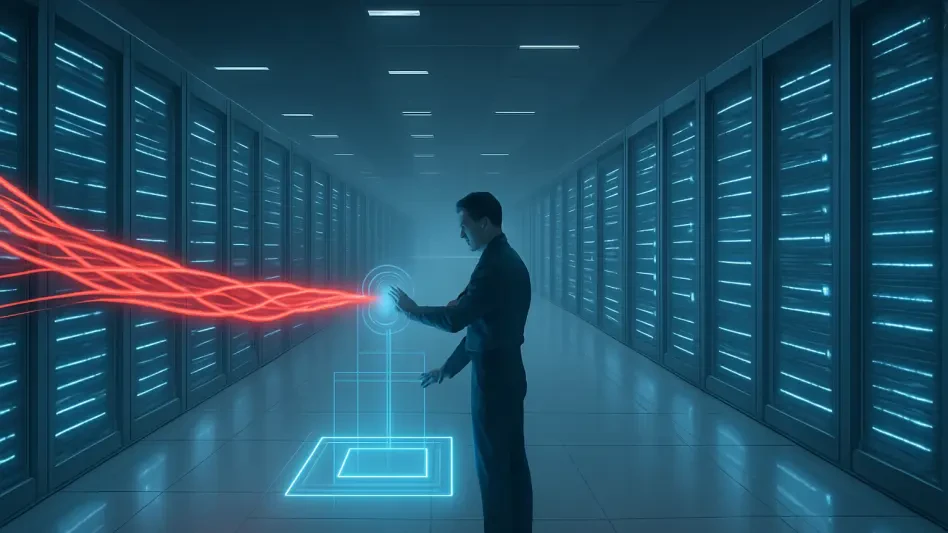In an era where digital warfare shapes global power dynamics, the intricate relationship between state institutions and technological advancements has come under intense scrutiny, particularly in the context of China’s sophisticated cyber capabilities, which have raised concerns worldwide. A key player in this landscape is the Beijing Institute of Electronics Technology and Application (BIETA), an entity closely linked to China’s Ministry of State Security (MSS), the nation’s primary civilian intelligence agency. Reports have surfaced detailing how BIETA serves as a critical enabler of China’s intelligence and military operations through cutting-edge research and development. Far from being a mere academic institution, BIETA appears to function as a strategic arm of state security, blending legitimate technological innovation with covert objectives. This revelation raises pressing questions about the intersection of research and espionage, as well as the broader implications for international cybersecurity. Delving into BIETA’s operations offers a window into the mechanisms that bolster China’s cyber prowess on a global scale.
Uncovering BIETA’s Ties to State Security
The origins and operational framework of BIETA paint a compelling picture of its integration with China’s intelligence apparatus. Established around the same time as the MSS in the early 1980s, BIETA is believed to be headquartered within the ministry’s compound, with leadership possibly drawn directly from MSS ranks. This close alignment suggests a deliberate design to support state security missions through technological means. BIETA’s work spans a broad spectrum of advanced fields, including cryptography, steganography (the art of concealing data within ordinary files), and network penetration testing. These areas are not merely academic pursuits but are tailored to enhance both offensive and defensive cyber operations. From covert communications to malware deployment, the institute’s contributions appear to be intricately woven into the fabric of China’s espionage efforts, providing tools that enable discreet and effective intelligence gathering across digital domains.
Further examination reveals that BIETA operates through specialized research labs focusing on communication, multimedia security, electromagnetic technology, and hybrid integrated circuits. Additionally, a quality testing center supports the development of various technological applications crucial for state objectives. While BIETA itself may not directly engage in illicit activities, its role as a facilitator for the MSS cannot be understated. The institute’s subsidiary, Beijing Sanxin Times Technology Co (CIII), complements these efforts by developing and marketing security equipment. Products such as fingerprint-secured USB drives and tools to detect hidden data in files underscore their focus on counterintelligence and data protection. This dual structure of BIETA and CIII creates a robust pipeline for technological innovation that directly feeds into the MSS’s broader agenda, raising concerns about how seemingly benign research can be repurposed for state-sponsored cyber activities on a global stage.
Technological Innovations and Cyber Capabilities
BIETA’s research portfolio is a testament to its pivotal role in advancing China’s cyber capabilities, particularly through niche technologies with dual-use potential. Steganography, for instance, stands out as a key area of focus, enabling the concealment of sensitive information within innocuous data formats—a tactic often observed in malware campaigns linked to Chinese advanced persistent threat (APT) groups. Beyond this, BIETA’s efforts in forensic investigation tools and network simulation provide the MSS with sophisticated means to both infiltrate and defend against cyber threats. These innovations are not developed in isolation but are often tailored to support specific intelligence needs, such as preventing data leaks or jamming signals in restricted environments. The breadth of BIETA’s technological output highlights a strategic intent to maintain a competitive edge in digital espionage, positioning China as a formidable player in the global cyber arena.
Equally significant is the role of CIII in translating BIETA’s research into practical applications for state security. By producing equipment designed for counterintelligence—such as devices to block electronic entry into secure areas—CIII ensures that the MSS has access to cutting-edge tools for protecting sensitive operations. Moreover, both entities have been linked to the acquisition of foreign technologies, raising alarms about potential technology transfer to Chinese military and intelligence units. This practice not only amplifies the capabilities of state actors but also poses risks to international partners who may unwittingly contribute to such advancements. The synergy between BIETA’s research focus and CIII’s product development illustrates a well-coordinated effort to bolster China’s cyber infrastructure, blending academic rigor with strategic imperatives that could reshape the landscape of digital warfare in the years ahead.
Global Implications and Strategic Concerns
The international dimension of BIETA’s activities introduces a layer of complexity to the discourse on cybersecurity. Through academic collaborations and participation in global conferences, BIETA and CIII gain access to expert communities and foreign software, which could be leveraged for intelligence purposes. This access raises significant concerns among foreign export control authorities, particularly regarding technologies like communications modeling and steganography that have clear applications in espionage. The potential misuse of such resources underscores the need for stringent oversight of partnerships involving Chinese entities with ties to state security. As BIETA continues to expand its global footprint, the risk of sensitive technologies falling into the hands of MSS operatives grows, prompting calls for a reevaluation of how international cooperation in tech research is conducted.
Another critical aspect is the strategic advantage BIETA provides to China through its dual role as a research hub and a covert arm of the MSS. By seamlessly integrating legitimate innovation with intelligence objectives, the institute amplifies the reach of Chinese cyber operations across political, economic, and technological spheres. This blending of purposes complicates efforts to distinguish between benign and malicious activities, creating challenges for global cybersecurity frameworks. The implications extend beyond immediate threats, as BIETA’s advancements could set precedents for how state-sponsored entities exploit technological progress for espionage over the next several years, from now through 2027 and beyond. Addressing these risks requires a coordinated international response, including enhanced scrutiny of entities like BIETA and CIII to prevent the unchecked proliferation of dual-use technologies that could destabilize digital security worldwide.
Reflecting on Past Actions and Future Safeguards
Looking back, the intricate web of BIETA’s contributions to China’s cyber operations revealed a calculated alignment with state security goals that had been in place for decades. The institute’s establishment alongside the MSS marked the beginning of a long-standing partnership that prioritized technological innovation as a pillar of intelligence work. Its labs had tirelessly developed tools for espionage and counterespionage, while collaborations with global networks quietly expanded access to critical resources. The activities of BIETA and CIII had consistently supported the MSS in navigating the complexities of digital warfare, often under the guise of legitimate research. This historical interplay between academia and state agendas underscored the challenges faced by the international community in identifying and mitigating covert influences in tech development. Moving forward, a proactive stance is essential—foreign authorities must implement stricter export controls, while tech industries should prioritize transparency in partnerships to curb the risks posed by such entities in an increasingly interconnected world.








